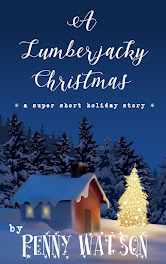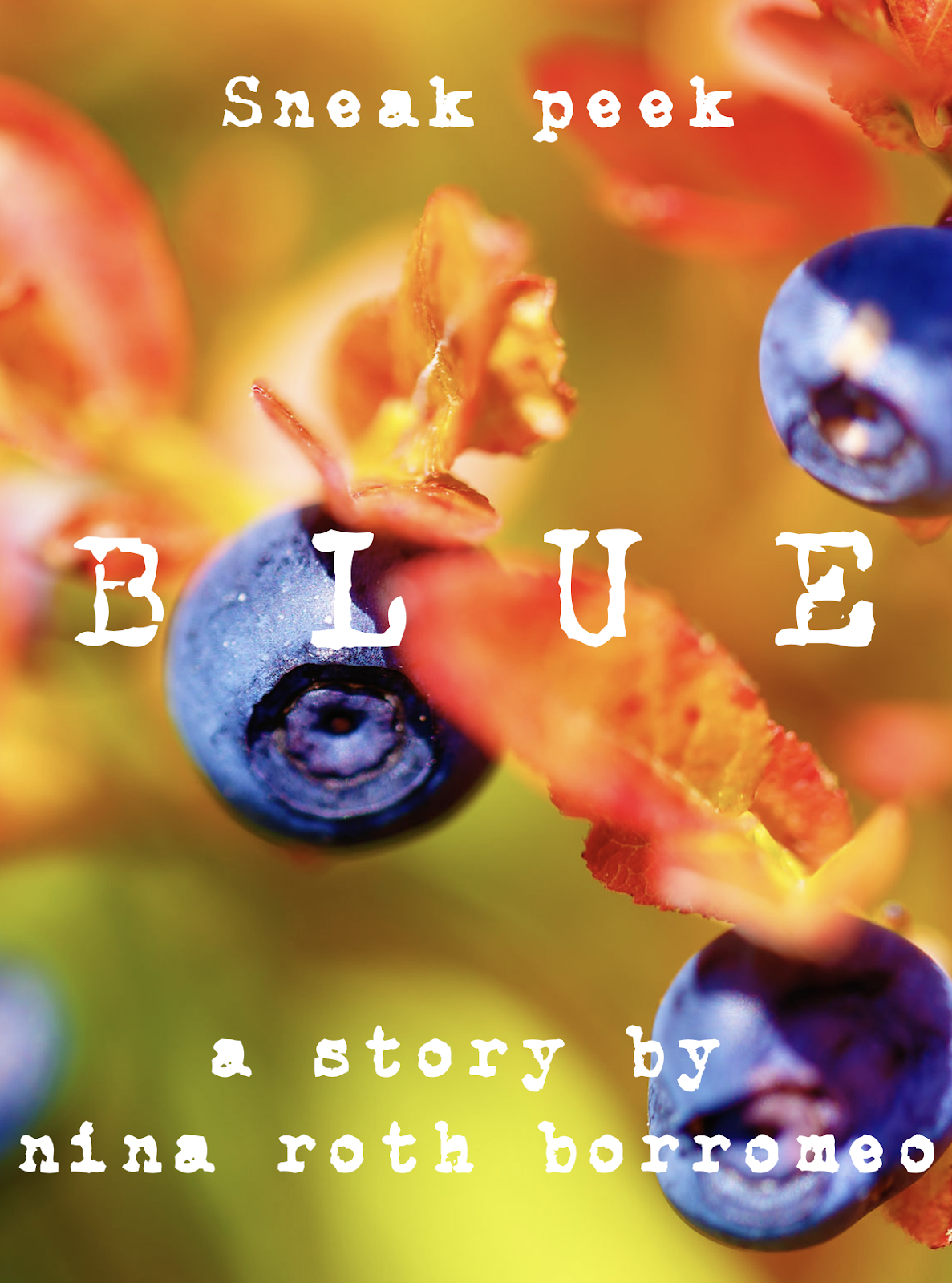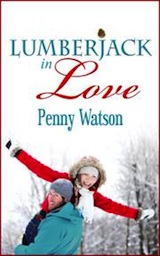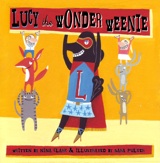So I thought it might be fun to do my own writing tips. You know, writing tips from an alternate universe.
Penny Watson's Writing Tips
1. Don't write.
That's correct. Walk, garden, go out to lunch with your friends.
Stuff that happens...your brain starts popping and jumping and thinking of cool story ideas and how to fix chapter 17 and a funny piece of dialogue.
Sometimes the best thing you can do for your writing is not to write.
The writing every day thing...bah. Some days I'm not "in the zone." Some days are "thinking" days or promo days or just putzing around in the garden days (aka, HAVING A LIFE).
2. Best thing for writing...WALKING.
I'm obsessed with walking. Why is it good for writing?
It's good for your body. It's good for your brain. It's good for your memory and mental well-being. It combats depression. It inspires you. It connects you to your community and environment.
When I walk, I write. In fact, I have trouble getting started with my writing if I skip my morning walk. I need it.
3. Adverbs are not Satan. They're fine.
4. Adjectives are not Satan. They're fine.
5. Passive voice is not Satan. It's really not.
6. It's all fine...just don't over-do. Too many adjectives make your writing cluttered. Mix up passive voice with active voice. If you use an adverb, make it a damned fine adverb.
7. Fragments are fine.
8. Isolated. Words. Can. Be. Fun. Especially if you need a bit of drama. Or even melodrama. Just don't over-do.
9. Don't read books that are too similar to what you're doing at the time. Read something totally different. You don't want to confuse your writing voice.
10. Sometimes the best preparation for writing is...cleaning. Decluttering. You know how sometimes you can't write when the bed is messy and the kitchen is filled with dirty dishes? Cluttered house = nagging feeling you need to do something. Clean the dishes. Make your bed. You feel lighter, freer, able to concentrate on your story instead of the piles of mail on the dining room table.
11. Word count can be pointless. Case in point...NaNo. Writing 50,000 words of crap is not such a great thing. I know. I know. Folks are all...but you can edit the crap later. Sometimes 50 words or 100 words or even one freakin' sentence, or maybe just re-editing chapter 3 is good. You don't need a set word count for every day.
12. You don't need an outline. And by this, I mean a very detailed outline. Maybe a rough idea? Something jotted down? Maybe it's swirling around in your brain. Don't feel like a failure if you don't have 14 plotting charts with color-coded post-its. Some folks love that biz, some folks don't.
You don't need it.
13. REALLY IMPORTANT....LISTEN TO THE NIGGLE.
That feeling...that feeling...the one that says "this sentence sucks"...yeah, it does. Highlight it in red.
That feeling...that you need more deep POV for the heroine...yeah, you do. Make a note at the beginning of the chapter, highlight it in red.
That feeling...that your sex scene is awkward and needs more emotion. Yep, too much bump and grind...add some dialogue and emotional POV. Make a note, highlight in red.
GO BACK AND FIX ALL THE RED SPOTS.
Done.
Listen to your gut feeling. It's the most important thing. YOU KNOW HOW TO WRITE.
Use the force, Luke! YOU KNOW WHAT TO DO!
Your gut is more important than your critique partners, than beta readers, than your editor, than your mother. LISTEN TO YOUR NIGGLE.
14. For God's sake, DO NOT GO TO THE AUTHOR LOOPS while you're trying to write your book. Don't worry about what's happening at Barnes and Noble and Amazon and KU and the latest plagiarism scandal and which blogger is secretly a bestselling author. Avoid the melodrama. Focus on your writing. Honestly, being on "top" of what's going on in the industry will not get that book written.
It's okay to read about the Kardashians. Unless they're writing a book. Then avoid.
15. Don't think about how to sell it. How to market it. Book covers. Blurbs. Price point.
THINK ABOUT THE STORY.
The meat of the sandwich, not the special sauce. It's all about the meat.
16. If you have writer's block, there's a reason.
There's something wrong with your book.
Maybe a character arc is missing? Maybe the sex scene is too soon. Maybe the tone accidentally switched from humor to dark and gritty and you lost that cohesive feel.
There's a problem. That's why you can't write.
Let your brain figure it out....SEE #2...WALKING.
Once you figure out what's wrong, you will start writing again.
17. Use your thesaurus.
I freakin' love the thesaurus. I learn new words. I think about a different way to say something. Maybe I want to say something different, but the first word that jumps into my head is a cliché, and the thesaurus bumps me out of that. Some days I spend hours on the thesaurus saying stuff like "Damn. I forgot about that word. That's a good word."
The thesaurus is not Satan. Use it.
18. You don't always need a dialogue tag. In fact, too many dialogue tags slow down the pacing and make your writing cluttered and awkward, she said awkwardly.
19. When you're done, you're not really done. Wait 2-4 weeks, and read your book again.
All those niggly problems will pop for you and you'll figure out how to fix them.
20. Don't be afraid to write lean, a skeleton, and add meat to the bones later.
Don't be afraid to write too much and slice and dice later.
It doesn't have to be perfect.
On the other hand, it's good to write "clean." You don't always have to puke it up. Sometimes you can polish as you go along and it makes revisions MUCH easier at the end.
I can't leave a chapter behind if it's super messy. It bugs the bejimminies out of me.
21. Always have a goal for each thing you write. NOT A PUBLISHING GOAL. A writing goal.
Try first person POV if you've never done it.
Try weaving together two unrelated story arcs and see what happens.
Try writing a new genre.
Push yourself creatively. When you keep writing the same thing over and over again it gets stale. You get stale. Your books get stale. And you can't make croutons out of your book.
22. When you're in the zone, keep going.
You can get take-out pizza for dinner.
23. Learn to write efficiently. After I had my heart attack, I could no longer sit for 8-10 hours writing.
Now I stand (at a standing desk)...for 1-2 hours. 3, if I'm pushing it.
I've learned to become faster and more efficient at writing.
Also, if you get 1000 words done, you get 5000/week (I don't write on the weekends). That's 20,000 words in a month. That's a novella. Done. One month.
24. Don't have too many people read your book. The truth is...YOU KNOW WHAT YOU NEED TO DO. Yes, you could have other people tell you what to do. Or, not. YOU KNOW.
Have one person read it. I like one person who's an author, and one person who does NOT read my genre and is a normal reader. Good to get that perspective...not if this works as a "romance"---but just, does this work? Period.
25. Have fun. Yes, it might be your job. But if it's a joyless task, your book won't sing. You get that magic when you enjoy writing the words. Have a good time! Write something that gets you jazzed up and happy.
And thus concludes the profound writing knowledge of Penny Watson.
Yes, I'm aware that other authors do not agree with these tips.
Please take with a grain of salt. And maybe some lime and tequila with the salt, too. Definitely the lime and tequila.
Over and out,
Penny




















